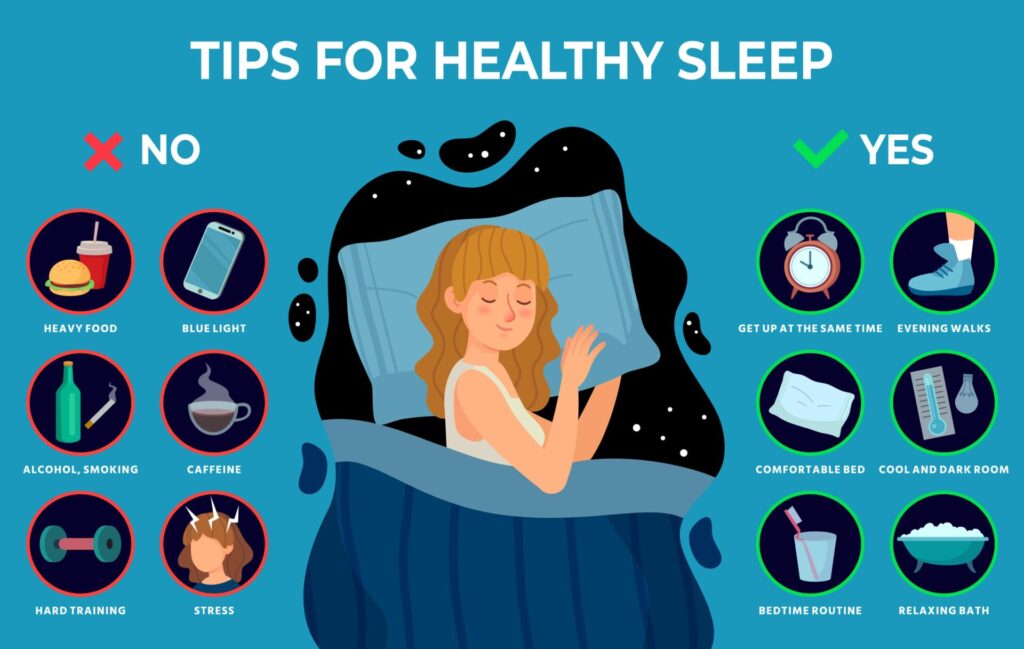The Importance of Sleep Hygiene
What is Sleep Hygiene?
Sleep Hygiene refers to both your sleep environment and behavior. Setting a strict sleep schedule, following a bedtime routine, forming healthy habits, and optimizing your bedroom are all part of good hygiene. The CDC estimates that about 1 in 3 people in the U.S. don’t get the sleep they need regularly. The good news is- every sleeper can tailor their sleep hygiene practices to suit their needs.
Luckily, we can alter our patterns and lifestyles with repetition. Here are some tips on how to implement healthy changes to your sleep schedule.
- Have a fixed wake-up time, even on the weekends!
There is a target bedtime based on your wake-up time, calculate it! Do your best to meet it. - Be gradual with your changes.
- Be careful with naps. Early afternoon is best if you must take one (and keep it short!)
Daily Habits to Improve Sleep Quality
- Although taking a relaxing walk before bedtime could be beneficial, try to get most of your exercise (especially if it’s more physically demanding) in during the day!
- Limit the use of your bedroom to sleeping and romantic activities. This helps you associate your bedroom with peace and rest.
- Be cautious of alcohol intake, although alcohol is known to help promote sleep, once it metabolizes– it does more harm than good to your REM sleep cycle.
Overall, you should try to calm down before getting in bed, no bright lights. Get off your phone, and tablet because blue light may decrease melatonin production.

Find more tips on what you can do during the day to achieve better quality sleep.
Don’t put your focus on sleep, put your focus on relaxation.
This means that after about 20 minutes if you are still having issues falling asleep, get up and do a calming activity (in low lighting), and then try again. You want bedtime to be peaceful, not a time you dread due to restlessness.
Time for Bed!
- Try to keep your environment’s light level low 2 hours before bedtime. This helps signal your circadian rhythm that your body is preparing to go to sleep.
- Don’t go to bed hungry or stuffed
- A good tip for restlessness at bedtime is to jot down worries on your mind preventing you from sleeping and save them to resolve in the morning!
Sleep hygiene will look different for everyone. If you are experiencing issues surrounding you sleep, you should see a specialist who can help you find out the best course of action for you.

Sleep Center Director, Priya Paruchuri provides complete evaluation, diagnosis, and treatment of sleep disorders. She is board-certified and fellowship-trained in Sleep Medicine.
Dr. Paruchuri is an expert in treating an array of sleep issues including narcolepsy, sleep apnea, snoring, insomnia, and more.
We also offer at-home sleep testing! Find out more about our sleep services here.








